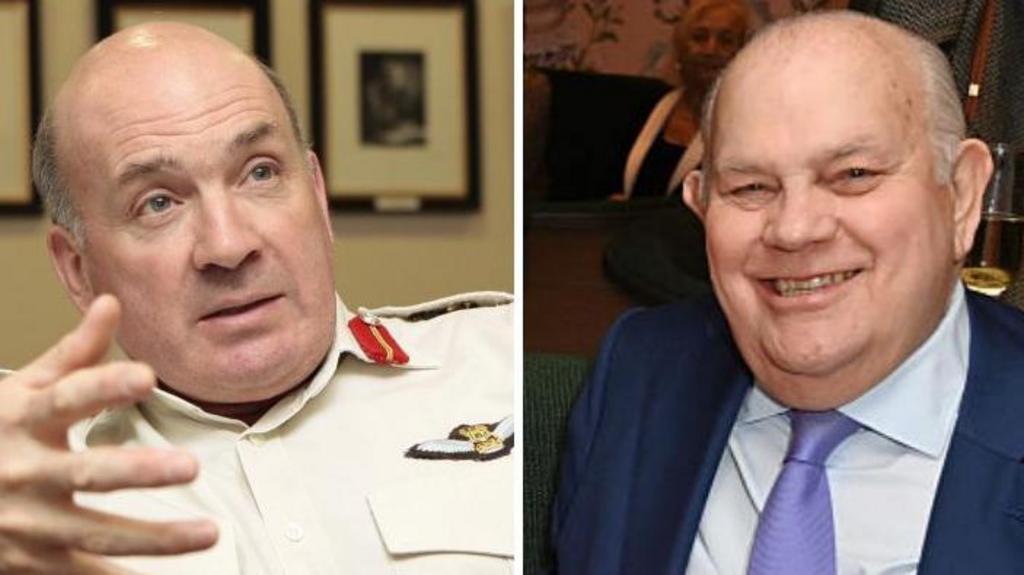Two members of the House of Lords are facing suspension for violating parliamentary regulations, including the provision of parliamentary services in exchange for “payment or reward.”
Lord Richard Dannatt, former head of the British Army, and Lord David Evans of Watford, a businessman, are expected to be suspended for four and five months, respectively.
The House of Lords’ standards watchdog initiated separate investigations into the two peers following an undercover exposé by The Guardian newspaper.
Neither peer has appealed the findings of the standards commissioner nor the proposed sanctions, which will take effect upon approval by the House of Lords.
During the investigation, the standards commissioner determined that Lord Dannatt, a crossbench peer, breached the code of conduct by communicating with ministers and government officials regarding three companies—UK Nitrogen, Teledyne UK, and Blue International Holdings—in which he held a financial interest.
The commissioner also identified four instances in which Lord Evans, a Labour peer, violated the rules, including sponsoring events in Parliament for a company owned by his son, in which he possessed a one-third ownership stake.
Both men referred themselves to the commissioner after The Guardian published reports of comments they made to the newspaper’s undercover reporters.
Lord Dannatt was filmed telling journalists, posing as potential commercial clients, that he could facilitate introductions to government officials and would “make a point of getting to know” key ministers.
The commissioner concluded that no lobbying had occurred and no payment had been received.
However, the commissioner stated that Lord Dannatt demonstrated “a clear willingness to undertake activity that would have amounted to paid parliamentary services” and “demonstrated insufficient regard for the need to act solely in the public interest in the course of his parliamentary activities.”
For this reason, the commissioner determined that the peer breached the section of the code of conduct mandating members to “always act on their personal honour.”
Over the course of the investigation, the commissioner identified three additional breaches related to Lord Dannatt contacting government officials about companies in which he had a financial interest.
In these instances, the commissioner stated that the peer breached the section of the code stipulating that peers “must not seek to profit from membership of the House by accepting or agreeing to accept payment or other incentive or reward in return for providing parliamentary advice or services.”
The commissioner stated that Lord Dannatt’s “lack of understanding” regarding the code and his belief that he was “acting in the national interest” were not mitigating factors, but acknowledged the peer’s “proactive expressions of remorse” and “willingness to learn.”
In a statement, Lord Dannatt acknowledged that the commissioner found three breaches of the code of conduct but added “for the record” that the Registrar of Consultant Lobbyists investigated the two UK-based matters and “concluded that I had not conducted consultant lobbying.”
He stated that he “deeply” regretted the findings and that the “honourable course of action was not to waste the Conduct Committee’s time by appealing against the findings but to accept the appropriate sanction.”
Lord Dannatt stated that he had declared all relevant interests and registered them with the Registrar of Lords’ Interests, but he accepted that his actions were “insufficient” and that “ignorance” was no defense for any breach of the code of conduct.
He added: “I also understand that acting in the national interest in good faith, which was my motivation in the three matters, is not an excuse or justification for breaching the Code of Conduct.”
“At nearly 75 no-one is too old to learn lessons and I hope that these activities will be placed in the context of my 56-years public service.”
Lord Evans was found to have failed to “act on his personal honour” by telling The Guardian journalists he could introduce them to MPs.
He also sponsored events in Parliament for the company, Affinity, and asked members of the House of Lords if they would speak at the events.
Tickets to the events were advertised for sale at a price greater than the actual cost per head, contravening House of Lords rules on holding events, the commissioner’s report said.
He noted that Lord Evans believed his shares in Affinity had been transferred to his son in 2013 and therefore “did not think he would benefit from sponsoring events for Affinity as a shareholder.”
However, the commissioner concluded that, taking into account the “number and seriousness of the breaches,” a lengthy suspension from the Lords would be appropriate.
Speaking to the commissioner for the inquiry, Lord Evans said of the meeting with the undercover journalists: “I was suspicious of the whole approach… in hindsight, I should not have agreed to attend the online meeting.”
Asked if he thought it was appropriate to invite peers to the events he hosted on behalf of Affinity, Lord Evans said: “Given the circumstances at the time, when I didn’t even know I was a shareholder – I had resigned from the company – I thought it was appropriate and I wasn’t breaking any rules.”
“I’m horrified by the whole thing. I’ve had a clean reputation all my life. I’ve never done anything wrong,” he added.

